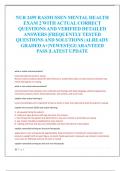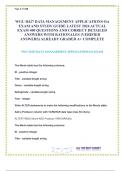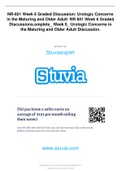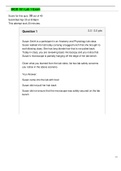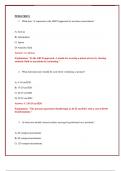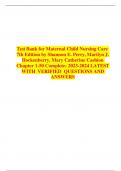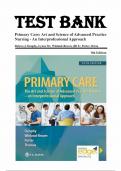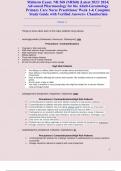Exam (elaborations)
NUR 2459 RASMUSSEN MENTAL HEALTH EXAM 2 WITH ACTUAL CORRECT QUESTIONS AND VERIFIED DETAILED ANSWERS |FREQUENTLY TESTED QUESTIONS AND SOLUTIONS |ALREADY GRADED A+|NEWEST|GUARANTEED PASS |LATEST UPDATE
- Course
- Institution
NUR 2459 RASMUSSEN MENTAL HEALTH EXAM 2 WITH ACTUAL CORRECT QUESTIONS AND VERIFIED DETAILED ANSWERS |FREQUENTLY TESTED QUESTIONS AND SOLUTIONS |ALREADY GRADED A+|NEWEST|GUARANTEED PASS |LATEST UPDATE
[Show more]
